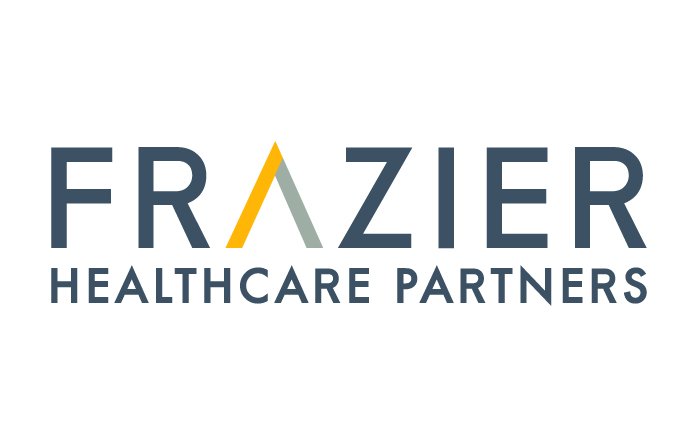BioMatrix is dedicated to making a difference in the bleeding disorders community. Our team of Regional Care Coordinators and Patient Care Specialists provide support that draws on personal experience and a genuine commitment to the bleeding disorders community. Our “Meet the Team” segment invites you to get to know our incredible staff a little bit better.
In this edition we feature John Martinez.
John Martinez is an educator, caregiver, advocate, volunteer and consummate professional dedicated to serving the bleeding disorders community. His involvement goes back to the mid-nineties when he and his wife set out to ensure families were connected with the right resources and support to navigate life with a bleeding disorder. That commitment continues to this day. John has a strong interest in helping families navigate care, especially those who do not speak English as their primary language. He and his family live in northern California where he remains very involved with the bleeding disorders community.
Tell us a little about your background.
Born in Tulare, California, I am the 4th of 8 children. My parents were migrant farm laborers from northern Mexico. When I was 8 years old, my family moved to Clovis, California, where my father attended an adult school to learn English, earned a high school diploma and entered an auto mechanic program. With his Journeyman certification, he spent well over 20 years working for the University of California. My parents greatly valued education as an opportunity to improve and create a new life. With that, I attended Fresno City College and the University of Phoenix, earning a Bachelor of Science degree in Business Administration.
Before working in the bleeding disorders world, I spent 19 years as a teacher at Clovis Adult Education (CAE), part of the Clovis Unified School District in Fresno County. After winning a federal grant that allowed CAE to open a community technology center in Fresno, I spent the next 12 years running the facility. Services provided included computer classes, English as a second language, job search assistance and a pre-school program.
What brought you to BioMatrix?
After 14 years of volunteering in my local bleeding disorders community, I was offered a position with a specialty pharmacy. A few years later at a national event, I met a BioMatrix care coordinator from Florida, and we struck up a conversation. I was very impressed with what he had to say about BioMatrix—the ethics, the value placed on teamwork and the dedication to the community. It piqued my interest and soon an official interview was arranged. I have happily been with BioMatrix for 2 years.
Describe your personal connection to the bleeding disorders community.
My involvement in the bleeding disorders community began in 1995 with the birth of our son, David. At 4 months old, I noticed the baby had a small bruise on his knee—it seemed to cause him some pain. At the next pediatric appointment, we discussed the bruise with his doctor, who, in an over-abundance of caution, recommended blood work and a knee scan. We watched as our son was poked and prodded and seen by several doctors. We were informed that David had an accumulation of blood in his knee that needed to be drained. We were confused but also trusted the physician. And so, a needle was pushed into his knee to relieve the pressure and we returned home. Within a couple of hours, we received a call informing us there was an irregularity with David’s PT blood work and we needed to come back to the hospital immediately.
After our son was admitted, a hematologist told us David had hemophilia. He gave a vague explanation that it involved coagulation needing intravenous medication and that a social worker would be arriving to talk with us. Since my wife’s primary language was Spanish, I asked for someone who could explain what was happening in her language. We waited for 3 days—apparently, no Spanish speaker was available. When we were finally home with our son, we began our own search for information and made appointments with a genetic counselor and a hematologist. Although our family members were supportive and tried to offer comfort, it was difficult to explain the seriousness of the diagnosis. As parents, we struggled to absorb the new reality for our son.
Two years after receiving the diagnosis for our first son, we welcomed our second, Daniel, who was also diagnosed with severe hemophilia A. This time, we knew more, but not as much as we should have.
After several years of limited access to information, we were finally made aware of the Hemophilia Foundation of Northern California. The first family event we attended resulted in a meeting with a well-known hematologist who helped us understand how to better advocate for our sons. That meeting led to a life-changing medication adjustment for our eldest son. He went from spending an average of 5 days a month in a wheelchair to never being dependent on one again. With new understanding and access to more regiment options, my wife and I began advocating for major changes in both of our sons’ treatments. With these changes, the boys began a life of sports—soccer, baseball, basketball and karate.
We began meeting with other families in the Central Valley area and sharing the information we had learned, especially with families who spoke Spanish. Soon after, we began coordinating educational events and support groups with the blessing of the Hemophilia Foundation of Northern California. We spent the next 14 years volunteering in the Latino community of the Central Valley area advocating for families such as ours.
My wife had dealt with bleeding issues related to her menstrual cycle since she was 12 years old; doctors always told her it was normal. After the hemophilia diagnosis for our son, we began questioning if she might have a bleeding disorder. At the time, we were told only boys could have hemophilia and that, at worst, she was a symptomatic carrier. Being unable to convince the HTC to test for a bleeding disorder, she discussed the issue with her gynecologist who then ordered the blood tests.
She was officially diagnosed with mild hemophilia A. In 2002, we welcomed a baby girl, Victoria. It took quite a bit of continual advocacy, but we were finally able to have her tested and obtained a diagnosis of mild hemophilia as well. With the experience of my wife’s undiagnosed bleeding problem and the struggle to obtain a proper diagnosis for her and for our daughter, the subject of women’s bleeding disorders and proper diagnosis has become an important issue to me. I am happy to work in a field that allows me to educate others about these issues.
Who is the most positive influence in your life, and in what way?
My wife, Leticia, has been a consistent and positive influence in my life since we met 30 years ago. She has always encouraged me to work hard and explore new avenues and challenges, including the ones eventually leading me to working with BioMatrix.
How do you feel you are Making a Difference?
Providing culturally sensitive and language-specific educational opportunities is of utmost importance to empower the Latino bleeding disorders community. I am Making a Difference by sharing my experiences and knowledge to help families better participate in the crucial decisions necessary for positive health outcomes.
What is the most cherished part of your job?
With the myriad of problems that can present themselves when living with a bleeding disorder, I greatly enjoy learning about new resources available to assist families. It is especially satisfying to work with the Latino community and be in a position to offer Spanish-language education and information to families who may struggle with the language barrier in medical settings. I am passionate about empowering families to improve the quality of life for themselves and their loved ones.
What advice would you give a newly diagnosed family?
When working with newly diagnosed families, I am a strong proponent of asking questions and exercising a parent’s right to understand their child’s diagnosis. The role parents play in making medical decisions regarding their child is absolutely vital. My advice to a new family is to keep asking questions. Get educated, and trust your instincts. Advocacy and education are key to providing the best possible life for children in the bleeding disorders community.
For myself, three of my proudest moments were watching my sons and daughter walk across the stage to receive their high school diplomas, bleed free.
Stay informed on the latest trends in healthcare and specialty pharmacy.
Sign up for our monthly e-newsletter, BioMatrix Abstract.
We value your privacy. Review our Privacy Policy here.





